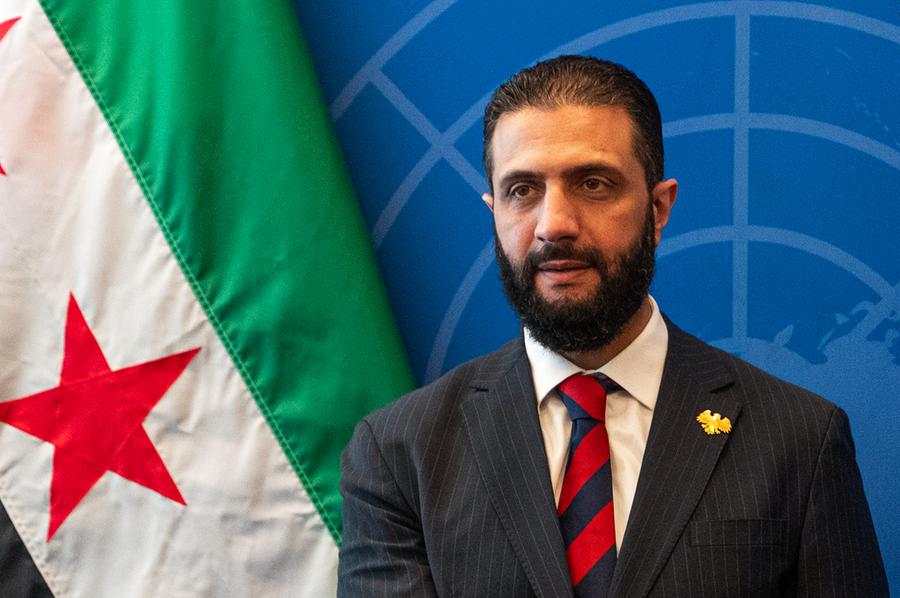Syrian President Ahmed al-Sharaa has asserted that his call for Israeli forces to withdraw from southern Syria is endorsed by the United States. This statement emerged during a landmark visit to Washington, where al-Sharaa met with President Donald Trump and senior administration officials. In an interview with the Washington Post, he described the distance remaining for a potential security agreement between Syria and Israel, a process that the US is keen to facilitate.
Al-Sharaa highlighted that one of the primary obstacles to peace is the ongoing presence of Israeli troops in southern Syria. Following the collapse of the Assad regime in December 2022, Israeli forces established control over land west of the Golan Heights, designating it a buffer zone amid the chaos that followed the prolonged Syrian Civil War and violence against Druze minorities.
In a notable shift, al-Sharaa has called for Israel to revert to what he termed the “December 8 borders.” He stated that his demand for withdrawal has the backing of Trump and accused Israel of pursuing “expansionist ambitions.” Despite this, he did not condition a security agreement on a complete withdrawal from the Golan Heights, which Syria claims as occupied territory.
Al-Sharaa dismissed Israel’s request for a demilitarised zone in southern Syria, arguing, “If this demilitarised zone was used by some parties as a launching pad for hitting Israel, who is going to be responsible for that?” He further contended that Israel’s occupation of the Golan Heights was initially aimed at self-protection and criticized the imposition of conditions that, in his view, could lead to further Israeli territorial expansion.
The implications of al-Sharaa’s visit have sparked debate within Trump’s political base, particularly among members of the MAGA movement. His past as a leader of an Al Qaeda affiliate, specifically Al-Nusra Front, has raised concerns. Al-Sharaa, known by his nom de guerre Abu Mohammad al-Julani, led Al-Nusra until it merged with other factions to form Hayat Tahrir al-Sham (HTS), which he now oversees.
Since al-Sharaa assumed power, the US has lifted significant sanctions on Syria, and both Washington and London have removed HTS from their lists of designated terrorist organizations. Still, some factions within Trump’s voter base express dissatisfaction regarding diplomatic engagement with a figure previously labeled a terrorist. Prominent far-right activist and close Trump ally Laura Loomer criticized the administration’s decision to host al-Sharaa, suggesting he should have faced arrest upon entering the US.
“Sometimes I feel like some of the people who work for President Trump deliberately go out of their way to sabotage him,” Loomer remarked on social media. “Who said ‘let’s invite the Isis terrorist to the White House for a photo op in the Oval Office the day before Veterans Day?’”
It is crucial to note that neither Al-Nusra nor HTS have affiliations with the Islamic State and opposed the group during the Syrian Civil War, primarily due to ideological differences and outright hostility between the two organizations.
On a broader scale, the US confirmed on Tuesday that Syria has become the 90th nation to join its Global Coalition to Defeat Isis. Tom Barrack, the US special envoy for Syria, referred to this development as “a pivotal moment in Syria’s history and in the global fight against terrorism.”
The evolving dynamics in the region highlight the complexities of international relations and the ongoing challenges in achieving stability and peace in Syria.
